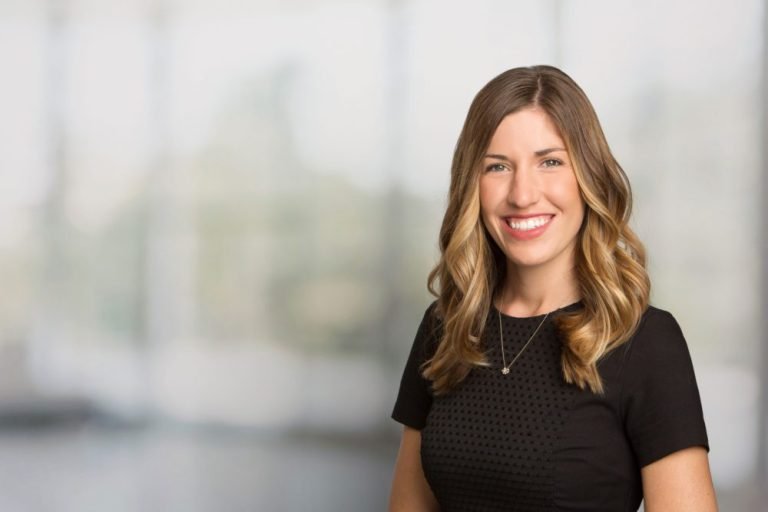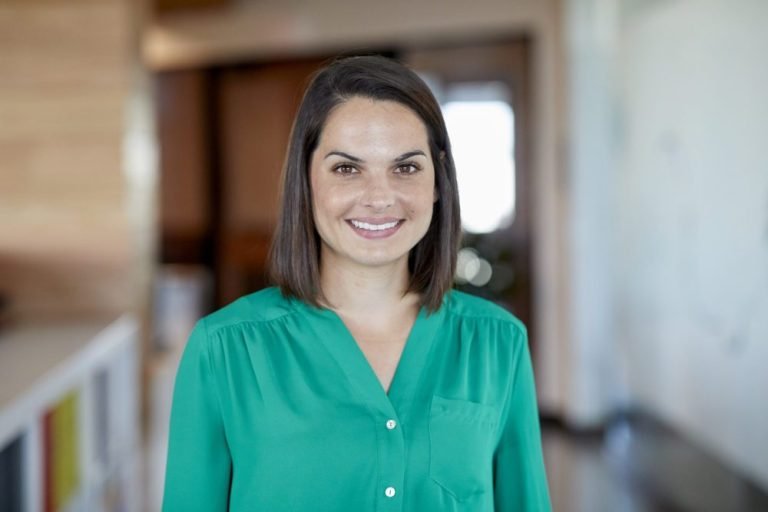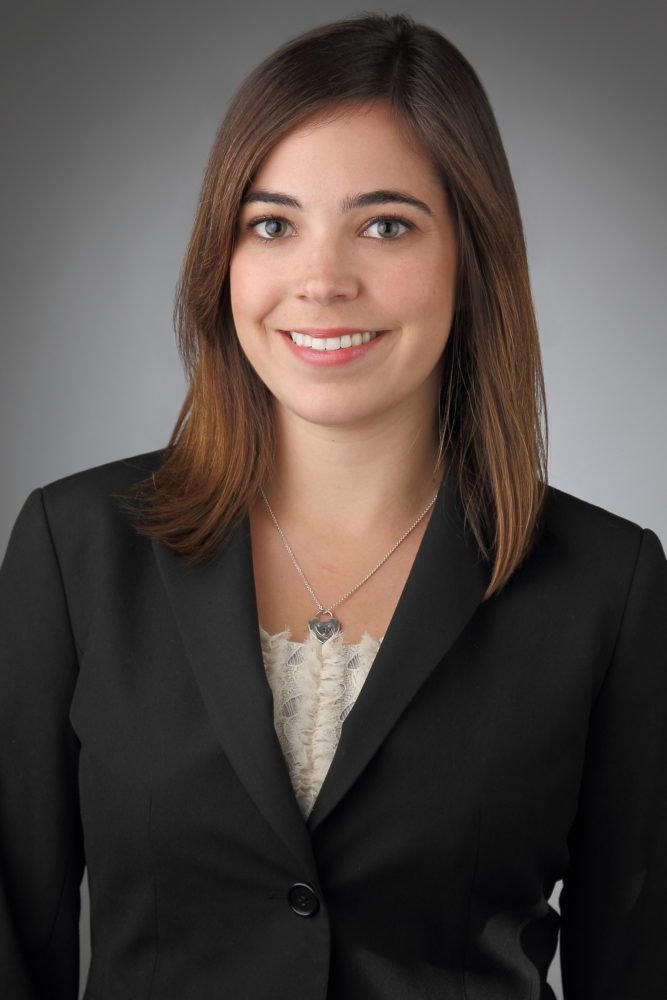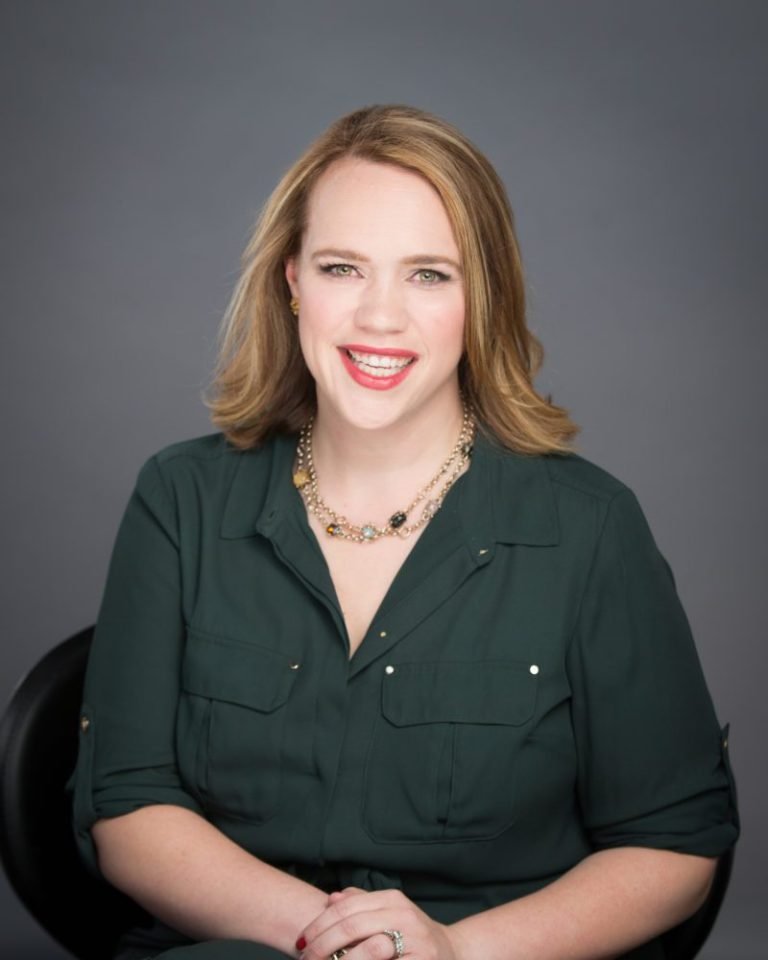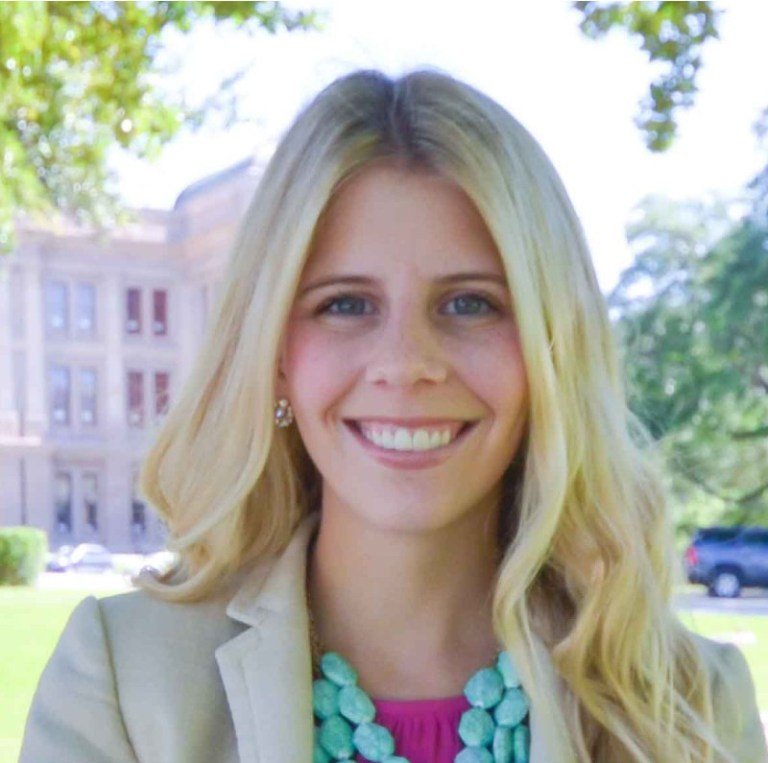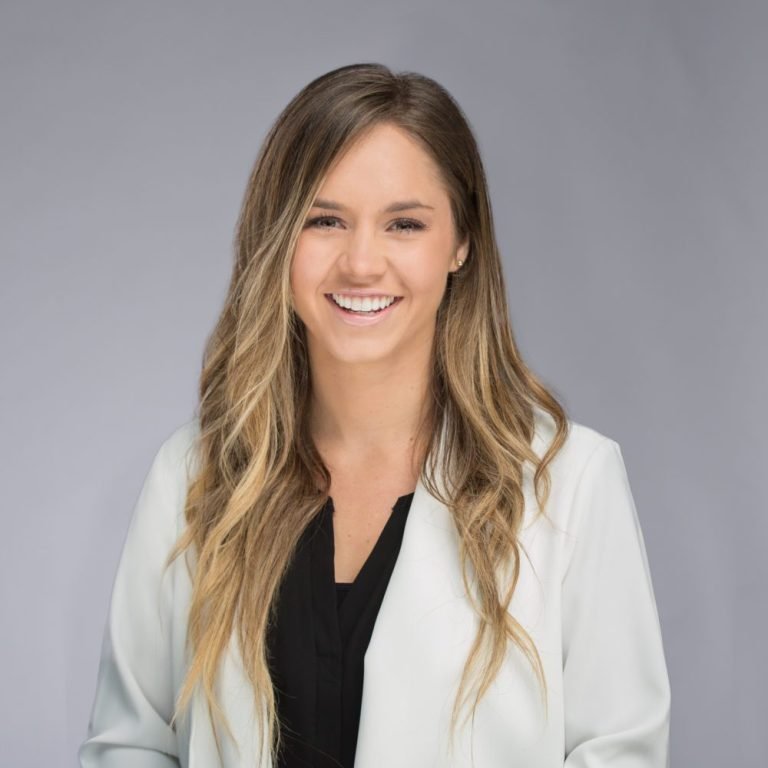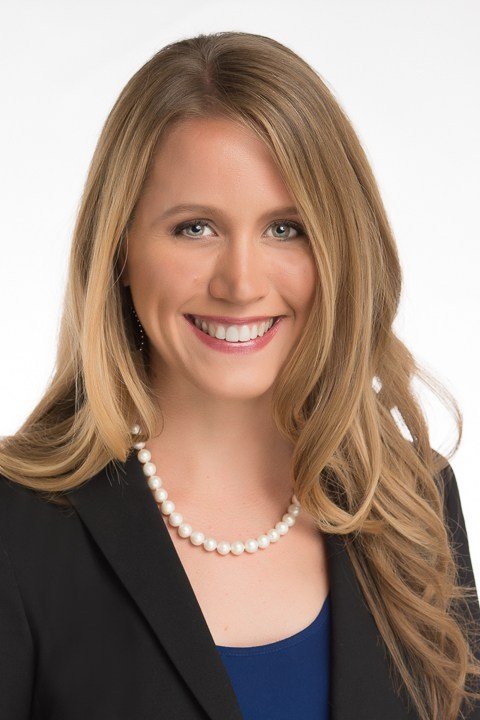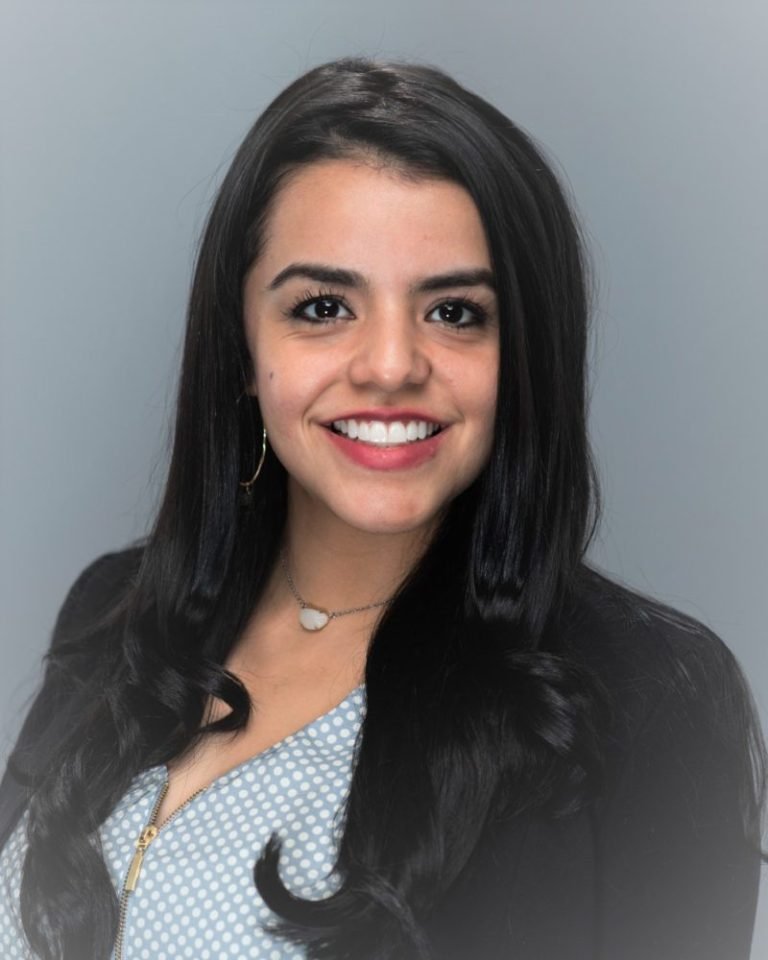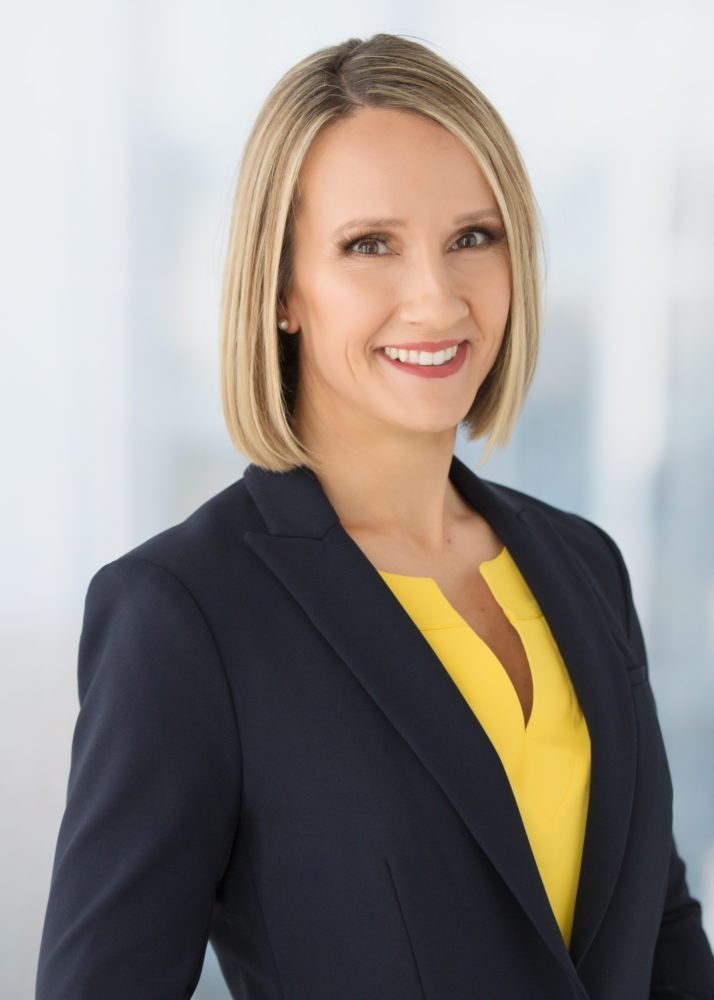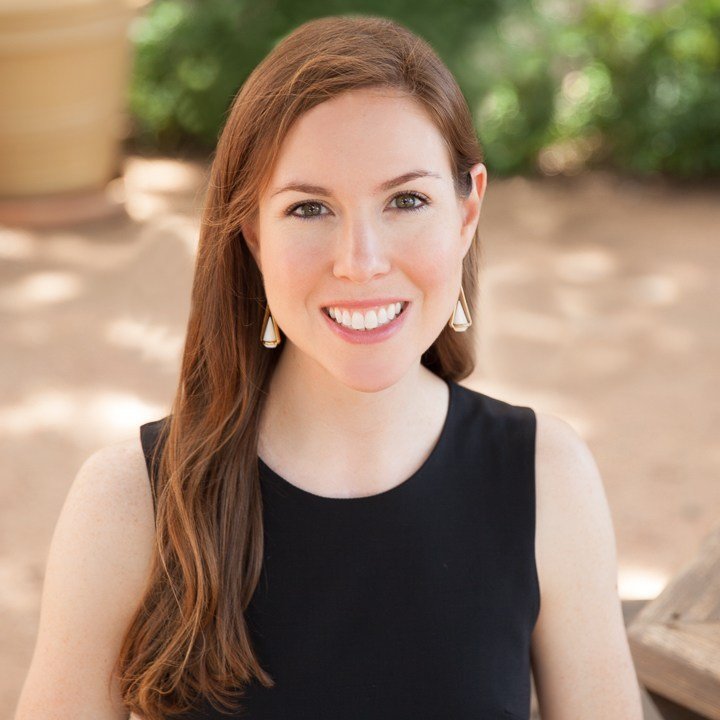Introducing 14 Young Female Real Estate Execs with Inspiring Stories and Advice
Jan Buchholz, Beck-Reit supporter and sponsor, writes another piece in partnership with DeLea Becker. DeLea is a prominent Austin Broker and an avid supporter of women, so she wanted to turn the spotlight on some young women just starting to make their mark on the realestate industry.
Jan interviewed fourteen of these determined ladies, and collected their advice and anecdotes into a full article, which you can read below or on Jan’s website ATX Real Estate News (click for redirect).
ATX Real Estate News sponsor DeLea Becker, founder of Beck-Reit Commercial Real Estate, is a vigorous supporter of women in the industry — and women in general.
Former Texas Governor Anne Richards remains a source of inspiration to her.
“I adore Anne Richards and this is one of my favorite quotes: ‘After all, Ginger Rogers did everything that Fred Astaire did. She just did it backwards and in high heels,’” Becker said.
Often women have to perform at a higher level than their male counterparts, particularly in the competitive field of commercial real estate, Becker added. A woman’s natural ability to multitask, problem solve and project manage every aspect of leasing, sales and development makes her the ideal team member and team leader.
“We run the house, take care of kids, take care of aging parents all while running our businesses. We juggle it all and that is exactly why we love the challenge so much,” Becker said.
There’s an even deeper thread of inspiration.
“I have had the pleasure of watching women generations before me work up the ranks and never bat an eye at inequalities,” Becker said. “Their steadfast desire to achieve at the top levels in their fields paved the way for my generation and many to come.”
As the 2019 president of Central Texas Commercial Association of Realtors, Becker wanted to celebrate and support some of the young women in Austin real estate who are excelling at a high level.
I reached out to a wide spectrum of young female real estate executives in Austin’s real estate community and heard back from more than a dozen.
One started working in tobacco fields in Georgia as a teen. Another interned during college with Red McCombs, one of the most famous — and wealthy — businessmen ever in Texas.
You’ll meet a young woman who earned her master’s degree from Johns Hopkins University and another who fell in love with the development business as a civil engineer.
All have strong, thoughtful opinions — a refreshing level of candor and boundless determination.
DeLea and I salute you all!
Alecia Burdick
Company: Savills
Position: Office leasing consultant
Years in real estate: 12 in real estate, 6 in commercial
Education: University of Texas. Bachelor’s degree in economics with concentrations in finance and architecture.
First job: Interning for Red McCombs while in my final year at Texas. I was given a lot of responsibility with the sink-or-swim mentality. Thankfully I learned how to swim. Hook ’em.
What prompted you to get into real estate: I pitched my residential landlord at 18 to remodel his property. Little did I know he would later accept and put me in charge as the local project manager. This triggered me to educate myself and move on to bigger and more complicated projects.
Why is it a good career choice for women: I find that as a woman I am are more memorable. Luckily many of my personality traits are conducive to the CRE industry: effective communication, persistence, tactical approach, multitasking, firm planning and execution.
Why are women so inequitably represented in real estate: I have not figured this one out. I do find people hire their friends the first time and after there are missteps seek out professionals regardless if they are a man or woman. This is where I truly shine by virtue of my reputation and experience.
Why aren’t there more women CEOs or entrepreneurs in real estate in Austin: I think there is a generational gap here. I find there are many more women in the commercial real estate industry at my level versus seniors who entered decades ago. I would hope this is an indication that times are a changing and expect more women CEOs to follow.
What advice would you give to women in college about getting into real estate: Never underestimate yourself or the power of persistence. Reach out to people and ask questions. I was turned down for several internships before I got my foot in the door.
What’s the most challenging aspect of working in commercial real estate as a woman: I’m an independent contractor and our health insurance is geared towards men. I would say this is a much larger problem about healthcare costs today.
What is your hairy audacious goal: #1 Power Broker. Much less hairy than in years past.
What’s your secret sauce: I’m persistent and readily available. I’ve been told I answer on the first ring. I’m also extremely passionate about what I do. I might not remember the restaurant I went to six months ago but I can tell you about almost every office building in town. My hat trick is knowing where your office is when you tell me what company you work for.
Lauren Brunner
Company: The Retail Strategy Real Estate Group
Position: Founder and CEO
Years in real estate: 15
Education: University of Texas, 2002 – 2006. Degree in finance with real estate concentration.
First job: Swim coach for neighborhood swim team at age 15
What prompted you to get into real estate: I enjoyed figuring out why new retailers would expand to an area … and how they connected all of the puzzle pieces to secure a site and open a location. I also owned a franchise in college and was fascinated by the ability to scale a brand through the franchise system.
Why is it a good career choice for women: Women have a strong ability to multitask and see how all the pieces come together. Being able to listen and read what people are expressing is also a huge component to be successful in the commercial real estate business.
Why are women so inequitably represented in real estate: Although I am seeing more women join the industry — and we have several female clients — I believe that the challenge has been the long lead time to build a pipeline and limited networking opportunities. This is a relationship business and guys do an excellent job of fostering and maintaining the relationships on the golf course, through hunting trips etc. It seems females sometimes don’t organically reach out to connect as often.
Why aren’t there more women CEOs or entrepreneurs in real estate in Austin: It seems that there are more females in the leadership roles in the residential real estate arena versus the commercial platform. I believe this role requires a strong background in problem solving and understanding financial metrics. I work on teams with several men and enjoy collaborating on how to best leverage negotiations and enjoy the different perspectives we both bring to the table. Often our client’s customer is mostly female and it is helpful to be able to relate to a client not only as a real estate professional but as a customer.
What advice would you give to women in college about getting into real estate: There are varieties of paths to take and I would encourage them to try out several internships. It is important to find a niche you enjoy and can become an expert on versus to dabble in too many areas.
What’s the most challenging aspect of working in commercial real estate as a woman: There are constantly several clients with multiple projects in various stages that all need to move forward. It is challenging to not miss the details, while keeping momentum on next steps and dealing with different types of communication styles. I have had to learn to adjust the way I communicate. It’s important to provide regular updates to the team and client.
Your hairy audacious goal: Our industry has not always had a great reputation — being a “used car salesman” — so my goal is to make a positive impact by serving brands nationally with top notch service. We have Columbus (Ohio), Houston and Washington DC satellite offices, but I would love to have more presence in other markets and be able to provide a full-service outsourced retail real estate platform to more brands looking to grow.
What’s your secret sauce: I thoroughly enjoy cultivating new relationships and develop a long-term strategic plan, efficiently utilizing our innovative location intelligence. Our business is both art and science, and I love creating the road map plus visuals to expand a brand’s market presence beyond their expectations! A good retail aerial is worth a 1000 words.
Bethany Perez
Company: AQUILA Commercial
Position: Principal
Years in real estate: 13
Education: Texas A&M University, 2000-2004, bachelor’s degree in business administration and marketing
First job: My dad instilled the values of work at an early age. When I was in high school, I worked at the local yogurt shop and tea room as a waitress during summers to earn a little fun money.
What prompted you to get into real estate: My older brother started in commercial real estate in Dallas straight out of college. He’s always been successful and a huge influence in my life. When I looked to him for direction and career advice, he encouraged me to consider commercial real estate.
Why is it a good career choice for women: Commercial real estate is a good choice for women, especially working moms, because of the income potential and flexible schedule. The income can fluctuate quite a bit, but there isn’t a ceiling on what you can make. It has given me the ability to continue working after I had kids. Also, real estate has given me the ability make my own schedule. While my hours are flexible, I try and stick to a normal work week and avoid working nights and weekends so I can spend time with my family. Additionally, I found that since there aren’t many women in real estate, it’s a great way to stand out.
Why are women so inequitably represented in real estate:Historically sales, especially commercial real estate, has been dominated by males. This paradigm is shifting as more women become wildly successful. It paves the way for other females. I think in the past women felt like they had to choose between work and family. However, times are changing and more women realize that they can do both and want both. The flexible schedules, technology at my fingertips and supportive teammates have made it possible for me to have a great work/life balance.
What advice would you give to women in college about getting into real estate: Make sure sales is right for you. If you are uncomfortable with fluctuating income and an “eat what you kill” mentality, this may not be the right profession. If commercial real estate is right for you, take your time to find the right company/team. Your immediate team and leadership will be some of the biggest factors in your long-term success. Find a team that believes in and supports each other.
What’s the most challenging aspect of working in commercial real estate as a woman: There is no shortage of networking events focused on typical male bonding such as fishing, hunting, and golf and ski trips. Women aren’t normally invited on these outings so you have to find your own way to connect with decision makers.
What is your hairy audacious goal: Being the #1 producer at AQUILA.
What’s your secret sauce: There is no secret sauce. Working hard to add value to my clients and team is all I really care about. The rest falls into place.
Caitlin Admire
Company: Perkins+Will
Position: Urban designer
Years in real estate: 9
Education: Kansas State University, graduating in 2011 with a master’s degree in landscape architecture.
First job: My first real estate-related job was a summer internship with an architect in my hometown of Evergreen, Colo., working on equestrian architecture, private stables, commercial barns, etc. I grew up riding and have a certificate in equine science from Kansas State, and I still ride regularly at a place in Manor.
What prompted you to get into real estate: In high school I thought I wanted to be an interior designer. I honestly think this came from watching Trading Spaces with my parents growing up, so I took a few CAD classes and was looking at design schools for college. My parents are K-State alumni. K-State has a highly-ranked design program, and when I visited the campus I fell in love, so it was an easy choice to attend there. The first year at K-state’s College of Architecture, Planning & Design all students are in a combined Environmental Design program and you specialize your second year. I went in thinking I would major in interior architecture but was quickly drawn to the work I saw in the landscape architecture studios, so I ended up going that direction.
Why is it a good career choice for women: Real estate affects everyone, so everyone needs to be represented! Especially on the design side, it is so important for our teams to have diverse backgrounds so that we are designing spaces and places that engage and provide for all users. For example, whoever thought up clear glass stair treads has obviously never worn a skirt!
Why are women so inequitably represented in real estate: Architecture and planning is a really demanding field for anyone, and it’s even harder if you are coming in anything less than being 100% set up for success — financially, physically, situationally — without anything else to worry about. This likely did not fit well with gender norms of the past and therefore there hasn’t been a lot of female representation in the industry, especially at the higher ranks. I do feel like the number of women in the design side of the industry is starting to balance out. Honestly a bigger concern for me right now is the lack of racial diversity I see in architecture and planning. Here’s a crazy/scary stat: In Austin in 2016 fewer than 0.1 percent of more than 1,100 licensed architects are African-American, according to Austin Woman magazine.
Why aren’t there more women CEOs or entrepreneurs in real estate in Austin: Building off the conversation from the previous answer, women have started to get into the industry in higher numbers, but the path to success in the architecture world is long (education, experience, licensure), so it takes awhile to rise to the top. Given that women were not more represented until recently, it will take time for the demographic shift we are seeing in entry- and mid-levels to permeate to the upper ranks of the profession. But make no mistake, it will be happening soon. I am surrounded by too many amazing women for it not to! Also it’s hard to be the first in anything. We have to give kudos to those women who are at the top of the profession right now, because you know it wasn’t easy and they likely had to go it alone most of the time. We are lucky right now to have some great female leaders to look up to, but there of course need to be more!
What advice would you give to women in college about getting into real estate: It will be hard work — the profession demands it. Find a solid group of ladies to commiserate with when necessary. But really, real estate is a rewarding career where you get to tangibly see your work come to life. It’s also a career that comes with a lot of responsibility, in that it has the ability to affect a community’s health, economy and overall quality of life. Our projects are long-lasting and have large, wide-spread consequences. Don’t overlook that aspect and try to do the most good with your work.
What’s the most challenging aspect of working in commercial real estate as a woman: How demanding it is and being able to balance that with life, that ever elusive work-life balance! It may be cliché, but it really is the hardest part, IMO. As a woman who does not have children yet, I often wonder how working mothers in real estate do it. But they do, and women are nothing if not resilient. We have a special way of figuring out how to get things done and make it all work. Also our blessing is also our curse in that a great thing about our projects is that they can and do affect lives. This can also be a heavy burden and a lot of pressure when you really begin to understand the magnitude of what we do and how much effect it can have on people.
What is your hairy audacious goal: To leave the world a better place! But really, if my projects have a net positive impact, then my career has been successful. I find it hard to say that my ultimate goal is working towards a certain title or something like that, because really who knows what the future holds? My dream project has always been to design the equestrian facilities for the Olympics!
What’s your secret sauce: Finding alignment between groups with seemingly dissimilar interests. It takes a certain skill to get a bunch of people in a room together who have different goals for a project and get them to leave convinced to work together towards a singular vision. This is the secret sauce to any big planning project: you must get all the stakeholders on board and support the project or it will be easily dismissed and disregarded — fated to sit on a shelf collecting dust, which is the worst fate imaginable for a planning document.
What advice would you give to women in college about getting into real estate: Get involved. Real estate is a complicated industry and whatever part you are playing, you will be a link in a very long chain of people involved in getting a project done. It is super beneficial to get to know those other roles in the industry, especially those that you do not work with regularly and understand what they do and where they are coming from. Personally, I have found the Urban Land Institute to be most valuable to me, but there are many great industry groups out there. Find one that piques your interest and jump in, especially early on in your career.
Caitlin Ryan
Company: Stream Realty Partners
Position: Vice president — investments
Years in real estate: 9
Education: Texas Tech University, bachelor’s degree in marketing. Johns Hopkins University, MBA with concentration in finance.
First job: Account manager for C.H. Robinson (transportation/logistics company)
What prompted you to get into real estate: The idea of purchasing and developing iconic real estate was extremely interesting to me. It still is!
Why is it a good career choice for women: I believe women have the opportunity to open a lot of doors that may be more difficult for men to do in terms of gaining access to property owners and potential future deals.
Why aren’t there more women CEOs or entrepreneurs in real estate in Austin: I think real estate has traditionally been a male-dominated industry. However, there are several extremely bright and successful female professionals in Austin that I believe will change that notion sooner rather than later.
What advice would you give to women in college about getting into real estate: Look at real estate as the opportunity to combine your greatest strengths socially with your greatest strengths mentally. There are very few jobs out there that require both, which makes it all the more appealing!
What’s the most challenging aspect of working in commercial real estate as a woman: At times I believe women can be underestimated in this industry, but I also look at that as one of our greatest competitive advantages.
What’s your secret sauce: I’m pretty tenacious, which can be a great strength or weakness depending on the day and who you’re asking!
Caroline Stockard
Company: CBRE
Position: Associate tenant rep broker
Years in real estate: 3.5, 1 year in current role.
Education: University of Texas, 2010-2014, bachelor’s degree in corporate communications and in Hispanic studies with a business foundations certificate.
First job: Marketing and sales at an accounting software firm in Dallas.
What prompted you to get into real estate: Word of mouth — a former colleague moved to CBRE in Dallas and referred me for an internal position here in Austin. Once introduced to commercial real estate, I found the industry to be intriguing, engaging and refreshingly fast-paced.
Why is it a good career choice for women: For anyone willing to work hard and hustle, the sky is the limit in commercial real estate in terms of income and growth potential. For women in particular, I feel that we are often able to provide alternative insights for clients, making us valued, and increasingly necessary members of the team. In addition, commercial real estate can allow for a more flexible schedule which works well for those, both men and women, who have young families.
What advice would you give to women in college about getting into real estate: Get out there, start meeting people and remember that you are always networking. You never know when you might need that contact in the future! Your network can be a tremendous asset when just starting any career.
What’s the most challenging aspect of working in commercial real estate as a woman: Always remembering that confidence is key. My clients are depending on me to best represent their interests and negotiate on their behalf. To do this my confidence translates into their confidence in my abilities. This is universal, I think, regardless of gender.
What’s your secret sauce? My thirst for knowledge. In this industry you need to constantly adapt your strategies and your capabilities to remain competitive and a valuable asset for your clients. As opposed to finding this daunting, I enjoy the challenge and thrill of constantly learning.
Emily Chenevert
Company: Austin Board of REALTORS®
Position: Chief executive officer
Years in real estate: 13
Education: University of Texas, 2002-2005 bachelor’s degree in government.
First job: My first job after college was with Newland Communities as the developer’s marketing coordinator. In this role, I managed all marketing efforts for two master-planned communities in Central Texas. This also included coordinating builder retreats, quarterly sales meetings and REALTOR® events.
What prompted you to get into real estate: My experience with the REALTOR® community began when I was hired as the government affairs and TREPAC coordinator for ABoR. In this role, I was able to marry my love of politics and policy with a special interest that has an awesome impact on our quality of life and community at large.
Why are women so inequitably represented in real estate: Women are inequitably represented in many industries. This challenge isn’t unique to real estate. I stand on the shoulders of some iconic female leaders who have paved the way on the residential side of our industry. Names like Ebby Halliday and Sherry Chris come to mind when I think about that history. That said, we have a lot of work to do. As the first female CEO of the Austin Board of REALTORS®, I know I’m helping provide our female members and the women I work with a new idea of what leadership looks like at ABoR. It’s important that I set an example for my team and balance my personal and professional commitments. I’m very transparent about the time I spend with my young boys, my youngest son’s medical trauma and the fact that my husband is a stay-at-home parent. I am able to do my job with an amazing team at ABoR, and the partnership that Hunter (my husband) and I share is paramount to my success as a mother and CEO.
Why aren’t there more women CEOs or entrepreneurs in real estate in Austin: In the same ways women struggle to gain traction in leadership in other industries, it just takes time to reverse old ways of thinking and support new ideas that benefit diversity. With continued encouragement and a little grit, we’ll see more women stepping up and being recognized for their contributions to our local market.
What advice would you give to women in college about getting into real estate: My general advice for pursuing anything hard is to never shy away from being who you are and never apologize for being direct. Sure, you can get a lot of bees with honey, but it’s ok to put your stake in the ground sometimes. Men are respected for their hardnose negotiating in this business and you can be too. More specifically, working in real estate is chock full of opportunities for a huge variety of skill sets and personalities. If you want to wake up hungry to work and make a way for yourself, you’ll never be involved with a more determined and driven community of professionals.
What’s the most challenging aspect of working in commercial real estate as a woman: The most challenging part of my position is staying on top of the fires. Serving 13,000 REALTORS® through our association programming and MLS system is no small task and every day is a little different. Coincidentally, that’s also my favorite thing about my job. Our members depend on ABoR to make their business work, and I feel the pressure of ensuring their needs are met so they are successful.
What’s your secret sauce: I’m a communicator through and through. I talk fast and listen intently. At the end of the day, most conflicts and chaos can be managed through honest and open communication. Not everybody is great at taking on hard conversations head-on but avoiding them never works. I’ve found that through my communication skills, much of my success has been found in maintaining strong relationships and a wide network.
Haley Berry Smith
Company: Equitable Commercial Realty (ECR)
Position: Senior brokerage advisor
Years in real estate: 6
Education: Indiana University, 2008-2012, bachelor’s degree in communications and marketing
First job: Global acquisition sales rep for HomeAway
What prompted you to get into real estate: I have known since I was 19 that I love to sell. I was attracted to the flexibility of the brokerage and the direct correlation between how hard one works and income. I was looking for a career that would leverage my strengths, challenge me and allow me to work with people. I met with a few real estate professionals and resonated with what they described about tenant representation.
Why is it a good career choice for women: If a person values relationships, every day being different and likes to work hard, then commercial real can be very rewarding. Additionally, there aren’t many women in real estate and this can lead to a unique perspective.
Why are women so inequitably represented in real estate: It’s been a good old boys industry forever but boys take note, times are changing!
What advice would you give to women in college about getting into real estate: Network! Meet everyone you can in the business and stay in touch with those you meet. This business is all about relationships and companies want to see that you know how to connect with others and follow through.
What’s the most challenging aspect of working in commercial real estate as a woman: Balancing being a wife, mother and business woman.
What’s your secret sauce: I try to tenaciously deliver for my clients and make the leasing process as smooth as possible. In addition, no matter how much success I have, I try not to ever let myself get comfortable or take myself too seriously.
Lexie Hall
Company: Cushman & Wakefield
Position: Senior associate tenant representation broker
Years in real estate: 3 years officially with 4 years of interning with multiple firms
Education: California State University, Sacramento, 2011-2015. Women’s golf team. Bachelor’s degree in finance.
First job: Research analyst for Oxford Commercial, which is now Cushman & Wakefield
What prompted you to get into real estate: My whole family is in real estate to some degree. I remember going to a thousand open houses with my mom and grandma, thinking if I have to listen to one more couple argue about whose parents will be spending more time at the house, how many kids they were going to have and on and on, I would go crazy. But I also remember loving real estate as a whole. My grandpa was a developer in the mountains of Northern California, and looking at property always brought me joy. I knew I wanted to be in real estate. I just didn’t know what exactly. So I interned with Heritage Title, Oxford Commercial and AQUILA Commercial and finally realized my passion was in office tenant representation!
Why is it a good career choice for women: The sky is the limit. You have the opportunity to bring unique insight into major decisions for companies.
Why are women so inequitably represented in real estate: Times were different 10-50 years ago. I think it is a product of history and the way families used to survive. Today I am thankful for the opportunity I have to chase my dreams and for the women and men who have allowed it to be possible.
Why aren’t there more women CEOs or entrepreneurs in real estate in Austin: I think sometimes we sell ourselves short and have to be 100% sure we can do it whereas men only need to be ~30% sure. The more women allow other women to rise to the top along with the support of amazing men in the business that see their value — which so many do — then I think women will absolutely be succeeding in the next 10-50 years.
What advice would you give to women in college about getting into real estate: First, you must want to make real estate your career, not a job for a couple of years. It takes time to finally catch your stride and start making the same money as your friends right out of college. Be ready to hustle. Many people say we work too much. Reminder: if we aren’t working, we aren’t making money. It is also important to find a company that supports you and provides resources for you to succeed.
What’s the most challenging aspect of working in commercial real estate as a woman: If you can get past the stubborn people in the business, whether it be men or women, you truly are set up for success. Women need to realize, as mentioned above, we bring such a unique aspect to the game that is unparalleled to men. Value yourself and you will be valued.
What is your hairy audacious goal: Become a top 100 Cushman & Wakefield producer.
What’s your secret sauce: Valuing relationships and people. Our business is all about relationships. Whether with landlords, CEOs, coworkers or friends, you need to have strong and well-respected relationships to make it.
Megan Wanek Frey
Company: Endeavor Real Estate Group
Position: Development associate
Years in Real Estate: 13 years
Education: University of Texas, graduating in 2007. bachelor’s degree in architectural engineering. Professional Engineer licensure
First job: Civil engineer at Bury, now Stantec
What prompted you to get into real estate: I didn’t really seek out real estate as much as I fell into it. My last year of college I took an internship in land development engineering. It was a backup, as my structural engineering internship — what I thought I wanted to do for a living — had fallen through. I found myself really enjoying the culture and pace of land development. That internship turned into a 9-year career in civil engineering/land development. As an engineer, I worked on some incredible development projects such as The Domain that allowed me to learn more about the commercial real estate business, and I really fell in love with the complexity of the industry. When I was given an opportunity to join Endeavor on the development/ownership side of real estate a few years ago, I knew it was the right next step.
Why are women so inequitably represented in real estate: I believe there are two reasons you see fewer women than men in CRE. First, it can be hard to get your foot in the door. A lot of men in real estate come from a family of men in real estate and they have a lot of connections from which to get that first job. That familial connection is not as common with women in real estate professionals and therefore we must sometimes search a little harder for that initial opportunity!
Second, it is a field that requires a lot of working hours over a lot of years. Young women that want to start families or are starting families can be intimidated by the level of commitment required to be successful in real estate, and sometimes they simply cannot commit the same number of hours as their male counterparts who aren’t having babies and driving the kids to school. Although we may be outnumbered, there are a lot of women in real estate in Austin that are doing great things and being recognized for their success, which is so important for the future women in this industry!
Why aren’t there more women CEOs or entrepreneurs in real estate in Austin: In my opinion, there are not as many women CEO’s/entrepreneurs because fewer women are choosing that path. It’s no secret that those titles come with a lot of work. I believe many women are seeking out a balance in life that includes both work and home life, and the pursuit of that balance often wins out over the hours required to make it to the executive level or to start their own business. For the women that want the corner office, I believe it is equally available to them as to any man. I just don’t think as many women aspire to that position!
What advice would you give to women in college about getting into real estate: Don’t be afraid to start somewhere else than where you ultimately want to be. Many successful real estate professionals (and professionals in general) started somewhere different than where they are now. A lot of people have worked their way up or, like me, worked sideways into the company/field/position they are in. There is value in the positions you will hold along your career that will be worth more than you realize, so embrace each step in your own path!
What is the most challenging aspect of working in commercial real estate as a woman:
The Boys’ Club. It exists in a lot of businesses, including CRE. The truth is, as women,there is a male camaraderie that we just will never be part of, and it can feel like a barrier to being heard and respected as an equal. I think the challenge is in accepting the Boys’ Club without allowing it to define you or how you do business. Once you have the respect of those around you, the Boys’ Club really doesn’t matter — it is a perceived barrier rather than an actual one.
What’s your secret sauce: My time management and efficiency. I have a lot of interests, and a lot of work, and efficiency is key to getting everything done! I am hyper organized, I make a lot of lists, and I schedule time away from my email and my phone to get things done. I have also learned the value in saying no and taking a step back from things that are not a good use of my time to make time for things that are. It’s a hard-learned skill that has benefited me greatly in my career.
Nina Farrell
Company: CBRE Inc.
Position: Consultant and broker, specializing in public sector/higher ed/institutional advisory and transaction services.
Years in real estate: 6.5
Education: St. Edward’s University. Bachelor’s degree in business with a management minor. CCIM designation.
First job: I worked at Hut’s Hamburgers as a waitress and later as a manager to pay my way through college, and it was there I met the prior Executive Director of Real Estate at the University of Texas System, Florence Mayne. Florence and her husband were regulars for years and became champions of mine. They came to my college graduation and were very supportive of my ambitions. When I asked Florence if she had a job in the UT System real estate office, she said no, but would act as a reference for an office assistant position in UT System Office of General Counsel. I volunteered for every lease abstract assignment the portfolio manager would give me, learning about real estate from anything she would share, and once I assisted in an onerous public information request. Three months later when a job opened in the real estate department, I applied and began my formal career in commercial real estate.
Working at UT System doing transactions for the 14 UTs across the state was an incredible introduction to the industry. We dealt with every asset type and each transaction was bound to have hair all over it. The pinnacle of my tenure there was being on the 3-man team with Kirk Tames, the current executive director, and Derek Silva, former NAI broker and now executive director of real estate for the University of Colorado at Boulder, to complete the evaluation, selection and subsequent negotiation of the ground lease of Block 71 with Trammel Crow.
We were able to secure over $445M in ground lease payments over the 99-year term, plus percentage rent once the project is up and running. Supporting the mission of higher education made me realize that I wanted to be a generalist in the asset types I handled, but a specialist in my client type — public sector and large institutional strategic advisory. At the end of the day, I love what I do and feel good about helping entities become better stewards of the taxpayer dollars they are responsible for.
What prompted you to get into real estate: Honestly, I needed an industry to apply my business degree to. Growing up in Wimberley, when it was the unincorporated Village of Wimberley, I NEVER thought I would be in the commercial real estate/development world, but when I saw what an impact a well-managed real estate portfolio can do for an organization, I was hooked.
Why is it a good career choice for women: Real estate is dynamic, analytical, and requires creativity and the ability to triage — Doesn’t that just about define the best attributes of a woman? We need diversity in every field. Diversity means differing backgrounds and perspectives and results in creative solutions to challenges that no one individual can come up with on their own. I would be remiss if I didn’t point out the individuals that encouraged and mentored me, giving of their time and expertise. Derek Silva, Kirk Tames, Ed Walts and Geoff Richards are all people who taught and encouraged me to pursue real estate as a profession when I was at UT. Then I came to CBRE and have had the incredible good fortune of working aside Eric DeJernett and learning from his storied experience in the Austin market. That man is truly a jack-of-all-trades; he knows land, development, retail, and if he hasn’t seen it, he can figure it out.
Why are women so inequitably represented in real estate: I truly think it’s a result of systemic gender bias. First you look at the jobs in which women have been historically underrepresented — business, analytics, finance, engineering, sales. These are all skills and industries that are related to real estate.
Women are already coming from behind, but catching up rapidly. Then you consider how many people are introduced to the industry through family wealth — property passed down the paternal line through generations, again historically and there are always exceptions.
The lone wolf attitude of brokers-past certainly isn’t conducive to women who start families and need some support system within their firms, and all that makes for a recipe which leaves women on the periphery. With all that said, I do see change and I feel like I’m part of it. CBRE has made strides to open doors to ambitious and intelligent women, and I have the benefit of their experience and seeing successful women in roles I aspire to. I’ve been given opportunities by men and women alike and firmly believe that my clients want to see a team on the other side of the table that looks like them — diverse.
Why aren’t there more women CEOs or entrepreneurs in real estate in Austin: Great question. When dealing with deeply ingrained patterns, it takes time to right the ship, and as progressive as Austin tries to be, it certainly struggles with gender and race disparities. Existing leadership has to look hard at the culture their companies foster and create actionable reforms that reflect a broader employment pool, but each of us in the industry bears a responsibility to pay it forward as the next generation comes in.
What advice would you give to women in college about getting into real estate: Success in real estate requires a dynamic set of skills. Spend your time in college becoming a well-rounded person with the utmost integrity. Look into different organizations that can help educate you on the many paths available in commercial real estate and connect you to people that may help you on your way. ULI Austin has been a wonderful group to be a part of.
What’s the most challenging aspect of working in commercial real estate as a woman: Commercial real estate can be high pressure and high risk, but also high reward. Balancing these extremes can be a challenge for anyone.
What is your hairy audacious goal: That’s a bit of a tricky one because while we all have career goals, I try not to be so rigid in my direction that I can’t change as the world does. I do love working with universities and public sector clients, and would love to become THE go-to real estate consultant for these groups across the country. My experience at UT gave me an insiders perspective into the motivations and priorities of mission based, public sector entities and my more recent work with the city of Austin has been incredibly rewarding. I’ve learned a tremendous amount from our team’s recent successes with the new Planning and Development Center at Highland Mall and new Austin Energy headquarters at Mueller. I want to build on these development advisory experiences and use the lessons learned and best practices to advise groups across the country who are trying to accomplish similar goals.
What’s your secret sauce: Never stop learning. The second you think you know it all, you’ve stopped creating value for your clients.
Paula Orozco-Lapray
Company: Marcus & Millichap
Position: Multifamily broker
Years in real estate: 2
Education: Texas State University, 2014-2016, bachelor’s degree in business administration management and operations.
First job: Marcus & Millichap. However, when I first started, I began in the single tenant-triple net sector of commercial real estate. I transitioned to multifamily within the first six months.
What prompted you to get into real estate: Like many, the idea of real estate had always intrigued me, but my preconceived notions of the lack of stability and competitive environment kept me away. I used to work in mid-level management for a growing start-up that I treated like my own business; I dedicated myself to moving that business forward only to fall victim to corporate downsizing. When that happened, I realized I had nothing to lose and was prepared to take on the risk I was initially adverse to. When I took the time to plan my next steps for my future, I learned how important it was for me to build a career based on my own efforts and interest versus those of a corporation.
Why is it a good career choice for women: Commercial real estate has been male dominant for such a long time, for no particular reason. Positive changes have been trending over time within our society, and with that, we have started to see mutual respect. Although there are not many women in commercial real estate — and this can seem to be a limiting factor — it truly is a benefit, as it may even open doors not available to men. Being in CRE competition is substantial. Thus, anything that will make you stand out in the beginning is a step in the right direction.
Why are women so inequitably represented in real estate: This is a field that women seem to just write-off as something not to pursue because of the historically disproportionate ratio of males to females. However, as a woman working in this industry, I would say the environment does not show any reason for us to not pursue our own individual goals.
What advice would you give to women in college about getting into real estate: I would encourage them to not feel apprehensive by the potential of being a minority within different branches of real estate, but to move forward confidently knowing they have a great opportunity in front of them to change the conversation and pave the way for future females.
What’s the most challenging aspect of working in commercial real estate as a woman: As a woman, I felt a disparity ratio of male to female agents in the local office culture. Starting a new career can be difficult as it is, let alone sometimes looking around to realize you are outnumbered 30 to 1. At the beginning I couldn’t help but to wonder why I had no female counterparts, and I craved meeting a tenured female CRE agent that could mentor me and be my example. Having navigated through this experience for two years now, I would say the adversity has become an advantage to separate me from competition.
What is your hairy audacious goal: To be afforded ample opportunity to live life to the fullest, and I feel that this field generously compensates monetarily and beyond.
What’s your secret sauce: My past-life in a mid-level corporate management role allowed me to leverage skills a lot of natural sales people may not necessarily have. Organization, attention to detail and soft skills go a long way with prospective clients in this industry, and there’s a lot to benefit in being well-rounded versus just having one forté.
Reagan Wood
Company: Duncan & Shelton Commercial, a real estate brokerage firm specializing in land and multifamily sales.
Position: Brokerage advisor with focus on land and multifamily sales.
Years in real estate: 8
Education: Georgia Institute of Technology (Georgia Tech), 2000-2004, bachelor’s degree in civil engineering
First job: I was an all-purpose helper on my parents’ hunting preserve, starting around age 7. Hunters came from all over the U.S. to my family’s land in south Georgia to shoot quail, duck and sporting clays. My parents believed that no task in their business was beneath me. From managing the care of 20-25 dogs in our kennel, right down to dressing birds when we were short on help, I did it all. I was given no special status relative to the employees. I met everyone from a 35-time world champion skeet shooter to a couple who ran a lobster operation in Maine and loved it.
My first paying job was harvesting or “cropping” tobacco at age 10. My dad didn’t want me to work outside during the hot Georgia summers. Determined to prove I could take the heat (literally), I cold-called a local tobacco farmer and he hired me on the spot. I spent the summer harvesting tobacco in the fields with boys twice my age. I proved my mettle to myself and my dad, and I enjoyed the early taste of independence. Money wasn’t really the point.
What prompted you to get into real estate: My path to real estate had several prompts along the way. In a sense, land is in my blood. My grandfather bought a farm during the Depression, which he passed on to my father. Later my father branched out and invested in additional properties. He taught me the value of generating income streams with real estate and the pride of ownership. Years later in 2009, I was working as a civil engineer, uninspired with my job, and looking to buy my first house. My home search quickly grew into a real estate obsession. Starting with home listings, I found myself drawn to the bigger picture — real estate trends in Austin, the impact of recessions on prices, growth along the I-35 corridor, and a belief that people might soon be priced out of homes and apartments in Austin. I ultimately dismissed my residential realtor, found a stalled condo project, and cut a deal in which I helped the builder get a loan, wrote the technical specs, and supervised construction. I was inspired by the builder’s freedom to do what he loved and make his own schedule, but I didn’t see a well-defined career path in real estate. That changed after conversations with several key mentors, including Ric Campo, Andy Pastor and Diana Zuniga, which eventually led me to brokerage. I already had the interest and passion for real estate — now I had a path. I jumped in and never looked back.
Why is it a good career choice for women: Brokerage work rewards creative thinking and problem-solving and provides enormous flexibility and income potential.
Why are women so inequitably represented in real estate: I think the biggest reason is cultural inertia. What starts as male-dominated tends to stay male-dominated. I saw a similar pattern in engineering. Men seemed more likely to pursue engineering careers because their dad or uncle did. In fact, I studied engineering in part because my father did. I give my dad a lot of credit for encouraging me to pursue a male-dominated career as a woman.
My hope is that gendered notions of career will fade as the marketplace rewards results. Research is clear that more diverse teams are more creative and putting women in leadership roles drives better performance. Businesses will likely keep pursuing combinations that are most effective and profitable.
What advice would you give to women in college about getting into real estate: Intern with whomever you can. Observe real professionals in action. Take CCIM classes. Also take classes that teach critical thinking and systems thinking.
Jumping into real estate may feel bold and uncertain. Real estate doesn’t offer the same well-defined career paths as other fields. Ric Campo once told me that regardless of gender, the best and brightest graduates tend to seek careers in investment banking, high tech or law rather than real estate. He thought the reason is that career paths in commercial real estate aren’t as well-defined. So be open to creating your own education and path. You can make your own way with a little rigor, knowledge of your personal strengths and good mentors.
What’s the most challenging aspect of working in commercial real estate as a woman: Uncertainty. A broker is paid zero dollars per hour and only receives income when deals close. So much can go wrong while a deal is under contract. For this reason the overwhelming majority of brokers primarily lease buildings, and are typically paid when a lease is signed. With sales the time to close can range from three months for a very fast multifamily deal to around a year or more — even as much as five years — for complex land transactions like the ones I handle. I think that’s why very few brokers specialize in investment sales, and even fewer exclusively sell developable land (as opposed to ranches). Land is deceptively complex and highly technical, and a lot can go wrong with a deal. You simply can’t live paycheck to paycheck. Finding a way to manage setbacks and delay gratification is part of the challenge.
What is your hairy audacious goal: One long-term dream I’m considering is to transition from brokerage to development or even private equity. My engineering background helps me see the big picture and put pieces together — and real estate is really just part of a bigger business puzzle. I find Daryl Kunik’s projects inspiring and I can envision myself doing something similar with accumulated capital.
What’s your secret sauce: The first thing would be my background in civil engineering (specifically land development). It made me comfortable with all the technical aspects of land deals — and there are many! Second would be my belief in advising clients as though they were my own family. At the end of the day, I know I can add tremendous value based on my skillset, and I can look in the mirror knowing I’ve treated people the way I’d want my own family to be treated. Both give me great satisfaction.
Taylor Steed
Company: FourT Realty, LLC
Position: Principal
Years in real estate: 15
Education: University of Pennsylvania, graduating in 2004. Bachelor’s degree in economics.
First job: Development associate for Clark Realty Capital in Washington DC.
What prompted you to get into real estate: I had the good fortune of being exposed to the commercial real estate sector growing up through my father Tom Terkel, a developer himself for several decades. I always enjoyed visiting different cities and was intrigued by what made certain parts of town unique and desirable. I knew in high school that I wanted to be in real estate.
Why is it a good career choice for women: Real estate is a creative and flexible field that rewards hard work and tenacity. Real estate offers a variety of paths for entrepreneurs so that women (or men for that matter) in search of work-life balance can find more flexible careers than in other industries. Women tend to be great multitaskers, extremely efficient with their time, not discouraged by “no,” and outside-the-box thinkers, which is a heavily recruited skill set in real estate.
Why are women so inequitably represented in real estate: I believe the gender imbalance stems from lack of exposure, lack of female role models and a hiring bias. That continues to change as the number of female executives in the industry increases.
Why aren’t there more women CEOs or entrepreneurs in real estate in Austin: As recent as ten years ago, the Austin real estate industry was still dominated by small local companies that were primarily started by men in the 1980s. That is changing. The number of women executives continues to grow as regional and national companies with more diverse leadership open offices in Austin, and local companies diversify their leadership as well. I think the trend will continue.
What advice would you give to women in college about getting into real estate: I recommend seeking analyst roles where you can learn best practices from establishes companies. Rank job opportunities by which one will provide the best educational base and open the most doors for your career. Have a 5- and 10-year goal and check in each year to ensure your career choices are helping you attain your long-term goals. Join a professional organization, such as RECA, and volunteer for a non-profit. It’s a great way to give back to the community while fostering new relationships and personal growth.
What is your hairy audacious goal: Conquering the work-life balance. All of my working mom friends can attest, it’s a difficult goal to reach and thus is a crazy one to strive for, and one that requires constant focus.
What’s your secret sauce: I think it is my work ethic, ability to adapt, discipline and initiative. You can’t be a successful entrepreneur without initiative

